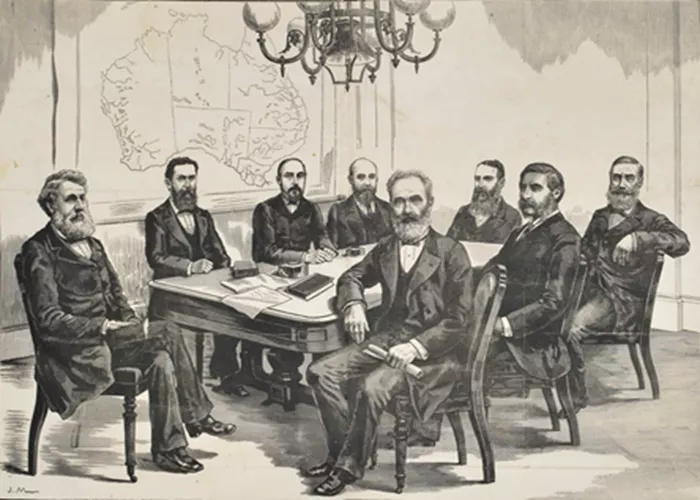January 25 holds significant events in Australian history, marking milestones that shaped the nation’s political landscape, social fabric, and cultural identity. Below, we explore various events that occurred on this date, providing a detailed account of their historical context and implications.
What Happened on January 25 in Australian History?
1. The First Assembly of the Federal Council of Australia (1886)
On January 25, 1886, the first assembly of the Federal Council of Australia convened in Hobart, Tasmania. This assembly was a pivotal moment in the movement towards federation among the Australian colonies. The Federal Council was established to address issues that transcended colonial boundaries, such as trade and immigration.
Prior to this assembly, Australia was divided into separate colonies, each with its own government and laws. The need for a coordinated approach to governance became increasingly apparent as economic and social ties strengthened among the colonies.
The council consisted of representatives from New South Wales, Victoria, Tasmania, Queensland, and Western Australia. It laid the groundwork for future discussions about unifying the colonies into a single nation.
Although the council had limited powers and was eventually dissolved in 1901 when the Commonwealth of Australia was established, its formation marked an important step in the evolution of Australian governance.
2. Formation of the Federal Labor Party (1900)
Another significant event that took place on January 25 was the formal founding of the federal Labor Party by state Labor politicians in Sydney in 1900. This event marked a critical development in Australian politics as it established a political party that would advocate for workers’ rights and social justice.
The late 19th century saw growing discontent among workers regarding their working conditions and rights. In response to these grievances, labor movements began to gain momentum across Australia.
The formation of the Labor Party aimed to represent the interests of workers at a federal level and to push for reforms such as better wages, working conditions, and social welfare programs.
Over time, the Labor Party became one of Australia’s two major political parties, shaping national policy and governance.
3. Explosion of HMAS Tarakan (1950)
On January 25, 1950, a tragic incident occurred when the landing ship HMAS Tarakan exploded at Garden Island in Sydney. This disaster resulted in the loss of eight lives and raised concerns about naval safety protocols.
The explosion happened during routine maintenance when a fire broke out on board, leading to an explosion that devastated parts of the ship.
This incident highlighted the risks associated with naval operations during peacetime and prompted reviews of safety measures within the Royal Australian Navy.
The loss of life deeply affected military families and underscored the importance of stringent safety regulations in military operations.
4. The Lonergan Scuba Diving Incident (1998)
On January 25, 1998, American tourists Tom and Eileen Lonergan were left behind during a scuba diving trip near the Great Barrier Reef. This incident became notorious due to its implications for tourism safety standards in Australia.
After diving off a boat that failed to account for them upon returning to shore, Tom and Eileen Lonergan were stranded in open water.
Their disappearance sparked a massive search operation but ultimately ended tragically when their bodies were never recovered.
The incident raised serious questions about safety regulations within the tourism industry in Australia. It led to increased scrutiny over dive operators’ protocols for ensuring all divers are accounted for before leaving dive sites.
It also prompted discussions about emergency procedures and response measures for tourists engaging in adventure sports.
5. Cultural Reflections on January 25
In contemporary discussions around January 25, there is an ongoing debate regarding its significance as it relates to Australia Day celebrations on January 26. Some advocate for recognizing January 25 as a day of reflection on Indigenous sovereignty and the impact of colonization.
For many Indigenous Australians, January 26 represents a day of mourning rather than celebration due to its association with British colonization.
Linking January 25 with January 26 has been proposed as a way to acknowledge both Indigenous history and European settlement—a compromise that honors both perspectives.
This discourse reflects broader societal changes towards recognizing Indigenous rights and histories within Australian culture.
Conclusion
January 25 serves as a reminder of pivotal moments in Australian history—from political developments like the establishment of federal governance structures to tragic incidents that have shaped public policy regarding safety standards. Furthermore, it invites ongoing conversations about national identity and reconciliation with Indigenous peoples. Understanding these events provides valuable insights into Australia’s complex historical narrative and its evolving cultural landscape.This exploration highlights just a few key events associated with January 25; however, each contributes significantly to our understanding of Australia’s past and present. As we reflect on these moments, it is essential to consider their implications for contemporary society and future generations.
Related Topics:

